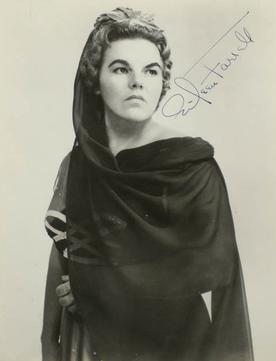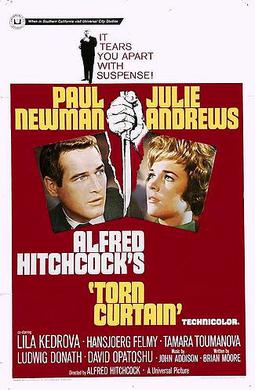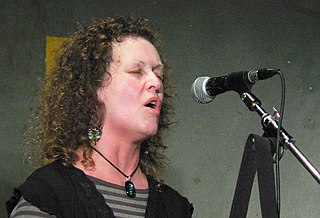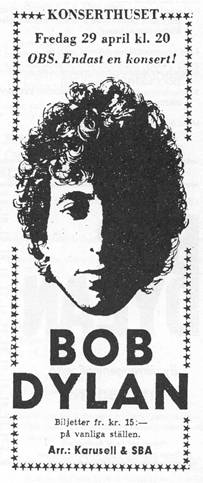
Dame Julie Andrews is an English actress, singer, and author. She has garnered numerous accolades throughout her career spanning over seven decades, including an Academy Award, a BAFTA Award, two Emmy Awards, three Grammy Awards, and six Golden Globe Awards as well as nominations for three Tony Awards. One of the biggest box office draws of the 1960s, Andrews has been honoured with the Kennedy Center Honors in 2001, the Screen Actors Guild Life Achievement Award in 2007, and the AFI Life Achievement Award in 2022. She was made a Dame (DBE) by Queen Elizabeth II in 2000.

Samuel John "Lightnin'" Hopkins was an American country blues singer, songwriter, guitarist and occasional pianist from Centerville, Texas. In 2010, Rolling Stone magazine ranked him No. 71 on its list of the 100 greatest guitarists of all time.

Nelson Smock Riddle Jr. was an American arranger, composer, bandleader and orchestrator whose career stretched from the late 1940s to the mid-1980s. He worked with many vocalists at Capitol Records, including Frank Sinatra, Ella Fitzgerald, Nat King Cole, Judy Garland, Dean Martin, Peggy Lee, Johnny Mathis, Rosemary Clooney and Keely Smith. He scored and arranged music for many films and television shows, earning an Academy Award and three Grammy Awards. He found commercial and critical success with a new generation in the 1980s, in a trio of Platinum albums with Linda Ronstadt.

Eileen Farrell was an American soprano who had a nearly 60-year-long career performing both classical and popular music in concerts, theatres, on radio and television, and on disc. NPR noted, "She possessed one of the largest and most radiant operatic voices of the 20th century." While she was active as an opera singer, her concert engagements far outnumbered her theatrical appearances. Her career was mainly based in the United States, although she did perform internationally. The Daily Telegraph stated that she "was one of the finest American sopranos of the 20th century; she had a voice of magnificent proportions which she used with both acumen and artistry in a wide variety of roles." And described as having a voice "like some unparalleled phenomenon of nature. She is to singers what Niagara is to waterfalls."
"Nessun dorma" is an aria from the final act of Giacomo Puccini's opera Turandot and one of the best-known tenor arias in all opera. It is sung by Calaf, il principe ignoto, who falls in love at first sight with the beautiful but cold Princess Turandot. Any man who wishes to wed Turandot must first answer her three riddles; if he fails, he will be beheaded. In the aria, Calaf expresses his triumphant assurance that he will win the princess.

Howard Weston "Ted" Bessell Jr. was an American television actor and director. He is best known for his role as Donald Hollinger, the boyfriend and eventual fiancé of Marlo Thomas's character in the TV series That Girl (1966–1971).
Juke Box Jury was a music panel show which ran on BBC Television between 1 June 1959 and 27 December 1967. The programme was based on the American show Jukebox Jury, itself an offshoot of a long-running radio series. The American series, which was televised, aired from 1953 to 1959 and was hosted by Peter Potter, Suzanne Alexander, Jean Moorhead, and Lisa Davis.

52 Pick-Up is a 1986 American neo-noir crime film directed by John Frankenheimer and starring Roy Scheider, Ann-Margret, and Vanity. It is based on Elmore Leonard's 1974 novel of the same name, and is the second adaptation of it after The Ambassador (1984).

Torn Curtain is a 1966 American spy political thriller film directed by Alfred Hitchcock, and starring Paul Newman and Julie Andrews. Written by Brian Moore, the film is set in the Cold War. It is about an American scientist who appears to defect behind the Iron Curtain to East Germany. It is the first of Hitchcock's films to be released without a score by Bernard Herrmann, after the end of their collaboration.
"Visions of Johanna" is a song written and performed by Bob Dylan on his 1966 album Blonde on Blonde. Several critics have acclaimed "Visions of Johanna" as one of Dylan's highest achievements in writing, praising the allusiveness and subtlety of the language. Rolling Stone included "Visions of Johanna" on their list of the 500 Greatest Songs of All Time. In 1999, Sir Andrew Motion, Poet Laureate of the United Kingdom, listed it as the greatest song lyric ever written.

Live 1966: The "Royal Albert Hall" Concert is a two-disc live album by Bob Dylan, released in 1998. It is the second installment in the ongoing Bob Dylan Bootleg Series on Legacy Recordings, and has been certified a gold record by the RIAA. It was recorded at the Manchester Free Trade Hall during Dylan's 1966 world tour, though early bootlegs attributed the recording to the Royal Albert Hall so it became known as the Royal Albert Hall Concert. Extensively bootlegged for decades, it is an important document in the development of popular music during the 1960s.

Julie Driscoll Tippett is an English singer and actress, known for her work with Brian Auger and her husband, Keith Tippett.

James Farentino was an American actor. He appeared in television, film, and on stage, including The Final Countdown, Jesus of Nazareth, and Dynasty.

Glenn Barrie Shorrock is an English-born Australian singer-songwriter. He was a founding member of rock bands the Twilights, Axiom, Little River Band and post LRB spin-off trio Birtles Shorrock Goble, as well as being a solo performer.

Julie Ann Felix was an American-British folk singer and recording artist who achieved success, particularly on British television, in the late 1960s and early 1970s. She later performed and released albums on her own record label.

K.T. Stevens was an American film and television actress.
Bob Florence was an American pianist, composer, arranger, and big band leader.

Henry Jay Lewis was an American double-bassist and orchestral conductor whose career extended over four decades. A child prodigy, he joined the Los Angeles Philharmonic at age 16, becoming the first African-American instrumentalist in a major symphony orchestra and, later, the first African-American symphony orchestra conductor in the United States. As musical director of the Seventh Army Symphony Orchestra, he supported America's cultural diplomacy initiatives in Europe after World War II.

Julie Sommars is an American actress. She won a Golden Globe Award for Best Actress – Television Series Musical or Comedy for her role in The Governor & J.J. in 1970, and was nominated for a Golden Globe Award for Best Supporting Actress on Television for Matlock in 1990.

The Bob Dylan World Tour 1966 was a concert tour undertaken by American musician Bob Dylan, from February to May 1966. Dylan's 1966 World Tour was notable as the first tour where Dylan employed an electric band backing him, following him "going electric" at the 1965 Newport Folk Festival. The musicians Dylan employed as his backing band were known as the Hawks, who later became famous as the Band.
















